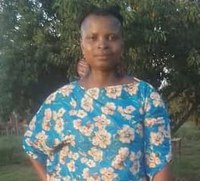
Mamosweu Tsoabi: changing the face of climate justice

As a result, if we do not take the necessary steps to ensure a healthy planet, the economy and physical labour will be negatively impacted. Despite pumping out the least climate-wrecking emissions, Africa is experiencing more rapid global warming than the rest of the world. Extreme weather events are increasing in frequency across the continent, and damage from rain, droughts, floods, and storms is intensifying, according to Green Peace. We'd like to introduce you to Mamosweu Tsoabi, a climate justice activist who is changing the face of the planet. On the 7 April 2022 to commemorate # WorldHealthDay, which marks the anniversary of the day @WHO was founded nearly 70 years ago we interviewed Mamosweu. Here is what she had to say.
Tell us about your journey as an activist and how you first got involved in the youth climate activist space.
My name is Mamosweu Tsoabi from Waterdal in Vaal, Gauteng. I'm one of the founder members of the Serapeng sa Basadi project. In 2009, one of my friends introduced me to Earthlife Africa in Joburg. That's where I learnt about the environment, climate change, and activism.
What prompted you to become very active in the fight against climate change?
Learning all this made me realize that it's all in our hands to make changes. I decided to go back to my community to share what I had learned and started organizing climate justice marches, workshops, and trainings. I also attended renewable energy training where women were trained in how to design alternative energy sources like fabric cooking bags and biogas digesters. I have even taken the initiative to build a biogas digester. The mission is to show people that it is possible to build and own alternative energy systems and to show how effective they are. "I'm willing to train more women in how to design their own alternative energy sources with funding assistance," said Tsoabi. Women are the ones who are most affected by climate change, so they need to come up with solutions.
What change would you like to see in the climate justice space?
What I would like to see is women be the ones making decisions about climate change bills. People should own and control the energy sector, in my opinion. She concluded that she wants to see justice served when it comes to climate catastrophes in communities and just transition stemming from those communities.
By Mamosweu Tsoabi.
